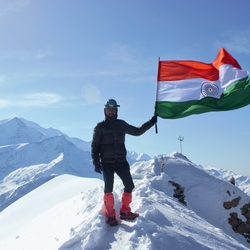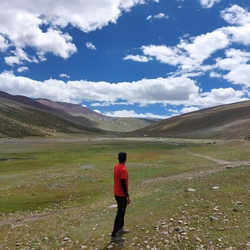When you introduce yourself as a scuba diver, there are bound to be so many questions and intrigue around the activity. Bloodthirsty sharks always top the list! Contrary to what most people believe, scuba diving is actually a highly safe and affordable adventure sport if you love the water. It allows you to explore the underwater world, letting you into a meditative environment that is probably the closest to outer space!
For the love of scuba diving, we attempt to bust some of the myths surrounding the activity, hoping that more people out there will try it out and fall in love as we did!

1. You have to be Perfect at Swimming to Scuba Dive
Absolutely not! While basic water skills are a requirement for the Open Water Diver course (Check out our Open Water Diver itinerary for more details), there is no requirement to be a perfect swimmer. All you need to do is swim 200m (300m with fins and snorkel) and float for 10 minutes and you’re all set to go ahead with the Open Water course. If you are not looking for a full-fledged course, the Discover Scuba Diving program is always an option and it does not require you to have any swimming skills at all! (Check out our Discover Scuba Diving itinerary for more details)
2. You will be Attacked by Sharks
Hollywood has got us all worried about shark attacks and megalodons, portraying these creatures as monsters that will devour anything that moves. One of the biggest and also most widespread myths about scuba diving is being eaten by sharks. Not true! Like most other creatures sharks do not bother with us unless we go out of our way to cause them harm or annoyance. They are also some of the most beautiful creatures you can witness while diving. So if anything, sharks actually have us divers super excited!

3. Scuba Diving is Extremely Expensive
Scuba diving is actually equally priced or sometimes even cheaper than a lot of adventure sports out there! The certificate courses even give you a lifetime certification and access to diving everywhere in the world, which is worth every buck spent on it. If you are just looking to try scuba diving, the Discover Scuba Diving program costs even less and is quite accessible, economically speaking.
4. What’s in those Scuba Tanks? Pure Oxygen I Guess.
False! Scuba tanks are actually filled with air that has the exact composition of the air we breathe. 21% oxygen and 78% nitrogen. These tanks are our source of air and what keeps us going underwater during our dives. If you ever see someone breathing pure oxygen then it’s probably an emergency situation.
5. Diving is Difficult and Takes a Long Time to Learn
Quite the opposite actually. Adventure sports like skydiving and mountaineering mandate long periods of training before getting even the basic level certification, while scuba diving only asks for 4 days! Yes, you read that right. You only require 4 days to complete your Open Water Diver course where you will learn all the skills to make you an independent diver. These skills are easy to perform if you are comfortable in the water and the instructors are always there to help. If you are looking to take your certification further, it only takes 3 days to finish the Advanced Open Water Diver course! (Check out our Advanced Open Water Diver itinerary for more details) So in just one week, you can get both your certifications provided that you meet all the requirements!
6. All the Good Stuff can Only be Seen at the Deep Sites
While the deep dive sites have a lot to offer, there is so much to see even at the shallow ends of the ocean! From corals to turtles and a wide variety of fish, a range of marine life can be seen at shallow dive sites.

7. Scuba Diving is Only for the Young
If you look up the internet, there are so many stories of people who got certified in their 50s, 60s, and even 70s! It’s a common scuba practice to get a medical questionnaire filled out and signed by the participants to ensure there are no health concerns. If you are 45 or above, you will be asked to get a clearance from your physician.
8. You Will Run Out of Air Underwater
One of the primary skills you learn in your Open Water Diver course is to keep an eye on your pressure gauge which will show you how much air is left in your tank. As long as you do a timely check on your gauge and also with your buddy, the chances of running out of air are extremely low!
9. You have to buy Expensive Gear to Learn to Dive
If you are looking to try out scuba diving or do the Open Water/Advanced Open Water Diver courses, you need not buy a single piece of equipment! Almost all dive shops rent out their equipment to you and it’s all included in your course fee!
10. You Need to Travel to Exotic Tropical Islands to Dive
A lot of the internet has us believing that the best diving happens in tropical destinations like Maldives, Indonesia, and Thailand. Not true at all! Scuba diving is a sport that can be experienced and learned in so many different regions and also different water bodies. A lot of diving also happens in lakes, quarries, and cenotes among many others. In fact, the magnificent blue whales, humpback whales, and orcas can be found in the colder regions!
Scuba diving can be an extremely fun and exciting activity once you look past all the misinformation that is floating around. Now that we have busted some of the myths around the activity for you, all that is left is for you to try it out yourself and let us know what you experienced!






